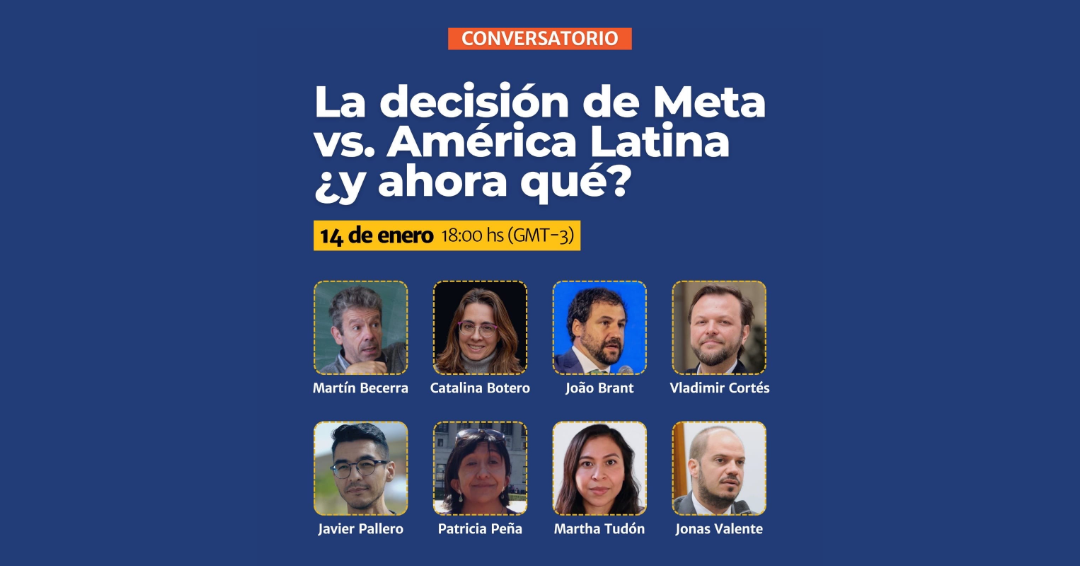The ever-increasing role of digital communication and information platforms as spaces for interaction and socialization brings to light the need for a multidisciplinary reflection on their impact on freedom of expression and personal data protection.
To delve into this issue, Observacom organized the discussion group “Meta’s decision vs Latin America: What now?”, which set out to analyze the implications of the latest announcement of the company led by Mark Zuckerberg in relation to content moderation and fact-checking of the information placed by its algorithms while seeking the attention of billions of users.
The activity featured the participation of Convergent Regulation co-researcher Patricia Peña, along with a prominent panel consisting of Martín Becerra, Catalina Botero, João Brant, Vladimir Cortés, Javier Pallero, Martha Tudón, Jonas Valente and Gustavo Gómez.
Peña, an academic at the Faculty of Communication and Image of Universidad de Chile, president of the Internet Society Chile Chapter and director of Fundación Datos Protegidos, outlined essential points for understanding the challenges and opportunities of the current digital environment.
In her intervention, the academic emphasized that social media have radically transformed the way in which people express themselves and participate in the public debate. Today, these platforms allow any user to share their voice, instantly reaching global audiences. However, access to this space is not without risks, especially regarding privacy and the use of personal data.
“We are disclosing an astonishing amount of information to companies that not always operate with full transparency in terms of how they use our data,” she stated.
Peña underscored the importance of fostering digital literacy among citizens, as many people currently do not fully understand how social media operate or how algorithms shape the content they consume and share.
This lack of knowledge, she explained, can cause users to be exposed to practices such as the mismanagement of their personal data, disinformation and even digital surveillance, which brings forth the need to incorporate educational programs that help people to use these tools in a safer and more conscious manner.
The academic also insisted on the need to implement public policies that comprehensively address the challenges of social media. This entails establishing regulatory frameworks that guarantee respect for the digital rights of citizens without limiting freedom of expression.
“It is fundamental to find a balance between allowing a diversity of opinions and protecting people from potential abuse or violations of their privacy,” said Peña, who also highlighted the role of governments and civil society organizations in generating inclusive and collaborative regulations that respond to the complexities of the digital world in line with its social use.
At the end of her presentation, the academic called for a reflection on the future of digital communication. Although she recognized the current challenges, she expressed confidence in the fact that active collaboration among different actors such as educational institutions, governments and companies can lead to a safer and more equitable digital environment.
Her intervention made clear that the full use of social media as tools for communication and citizen participation will greatly depend on the collective ability to face the ethical and legal challenges posed by the use of these platforms.
Watch the video of her intervention below:


